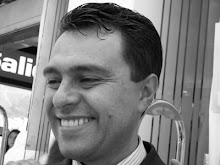
A biomedical researcher’s career path can be determined by his or her success in publishing research results. Furthermore, the ability to clearly communicate one’s research findings determines the extent to which those findings can be used as the basis of others’ research. At the same time as English is becoming the dominant language of science, a growing number of US
trainees and faculty do not speak English as their first language.
trainees and faculty do not speak English as their first language.
Therefore, instruction in the conventions of English-language scientific writing should be an integral part of career development for both native and nonnative English-speaking researchers,
say Carrie Cameron, PhD, and co-workers, who discuss the scientific writing education program at the University of Texas M. D. Anderson Cancer Center.
say Carrie Cameron, PhD, and co-workers, who discuss the scientific writing education program at the University of Texas M. D. Anderson Cancer Center.
Focus groups indicated that both faculty and trainees needed scientific writing support. The Department of Scientific Publications envisioned a workshop that could be useful for all, and formed a steering committee to develop such a course. The result of this program was an 18-hour workshop, “Writing and Publishing Scientific Articles.”
The workshop follows the widely accepted model of introduction, methods, results, and discussion (IMRAD), and covers topics such as material to include in each section, building the sections, use of background, discussions of others’ work, and mention of study limitations. Workshop time is devoted to techniques for writing with clear and cohesive language and to getting started in the writing process.
The workshops are led by teams of experienced biomedical editors, and faculty members lead the discussion on the peer review process. Qualitative feedback from participants has been overwhelmingly positive; in particular, nonnative English speakers note that they find the discussions of English language structure and rhetoric very helpful.
Artículo completo
Cameron C, Deming SP, Notzon B, Cantor SB, Broglio KR, Pagel W. Scientific writing training for academic physicians of diverse language backgrounds. Acad Med 2009;84(4): 505 - 510.

No hay comentarios:
Publicar un comentario